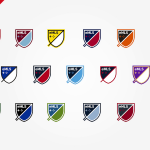Do Curveball Interview Questions Really Work?
When does an interview question cross the line from useful to absurd?
Imagine you’re interviewing candidates for a high-pressure, fast-paced job in your company. It’ll require supreme composure in stressful situations, outside-the-box thinking, and above all, that they bring their most polished professionalism to the office every day.
Across from the interviewing table, you look them in the eyes and ask, “Who would win in a fight between Spider-Man and Batman?”
In a recent list from Mashable, we gained insight on how ridiculous interview questions can be, from financial advisory positions and software engineers to ice-cream scoopers and chino-pants sellers. These companies have reputations nearing household-name status, but are their interview questions too ridiculous to be effective? We asked hiring experts to weigh in.
“Yes, They Work!”
If you can get through a question like “What’s your favorite Disney princess?” with a straight face, the ridiculousness of these questions could pay off.
“Candidates know the standard questions and are typically really well rehearsed,” says Heather Kernahan, general manager and EVP at tech communications firm Eastwick. Injecting humor into an otherwise stuffy situation lets the candidate’s personality shine, off-message. Curveballs get them thinking on their feet, and a little bit stressed—revealing a glimpse of how they’ll behave at work. “It’s a mini simulation of how they’ll really respond during an unexpected work situation,” she says.
But these questions don’t have to be traps with the goal of tripping up an otherwise good candidate, says Gary Barr, COO of portfolio intelligence platform Novus. In an interview, many hiring managers seek opinions (“How do you think others see you?”) instead of skills-based evidence that they’ll be right for the job.
“Watching and understanding how the candidate reacts when confronted with such an unusual question, and logically assessing their response and ensuing discussion, provides evidence of a candidates ability to react on their feet, stay in the moment, and deal well with whatever is thrown at them,” Barr says. “And knowing that helps you assess whether this candidate will deliver in a fast paced, chaotic, and often highly pressurized professional environment.”
“No, They’re A Waste Of Time”
Are these questions keeping great talent from nailing your interview process?
Tim Toterhi, HR professional and author of Job Hunting For Introverts, says yes. “Some could make the argument that the favorite Disney princess or Batman vs. Spiderman questions could uncover a person’s conceptual flexibility and ability to think on their feet, but that favors verbal processors and you’ll end up with surface thinking,” Toterhi says. “I’d rather get deeper thought and greater insight that can actually be applied.”
Stick with the real questions that dig deeper, instead of wacky ones meant to trip candidates up, says Karin Hurt, CEO of Let’s Grow Leaders. “I think it’s much more important to ask real questions that get to a candidate’s values, strategic thinking, and track record. You might “trick” an introvert who’s not that great on her feet, and miss a gem.”
Beyond their usefulness (or lack thereof) in choosing the right person for the job, left-field questions can be a risk to your company’s reputation. In employment law, according to Josh Berry, 10-year talent consultant and researcher who now advises HR-related tech startups, interview questions must relate back to the job’s qualifications.
“Straying too far away from things that actually have to do with the job can start to put you at risk for discrimination lawsuits.” For example: a seemingly innocent but unrelated question, such as “What path did you take get to work this morning?” uncovers clues to a person’s financial situation—whether they drive or take public transportation, where they live, etc.—and the person doesn’t get the job. If they claim discrimination based on that one silly question, the company is stuck trying to prove that this person’s socioeconomic status wasn’t what cost them the job.
How To Handle Curveballs
If you’re lobbed a question like “How many people flew out of Chicago last year?” how can you answer gracefully?
Take a breath. “Keep calm and breathe while you think through your response,” says Kernahan. “It’s OK to say that you need a minute to think about your answer because you’ve never had that question before.” Your future has probably never depended on your ability to unload a 747 full of jellybeans, after all.
Then, “cut the crap,” says Hurt. See through their intentions and call them on it. An example: “Are you really asking about my character or quick-thinking potential? If so, let me tell you about the time I saved [my employer] $5,000 by catching someone else’s mistake.”
Another option? Play along. Toterhi gives this scenario: “Next time an interviewer asks you who would win in a fight between Spider-Man and Batman? Smile. Then say, ‘Interesting. Of course, a better question might be who would win at Scrabble, Aunt May or Alfred? Your thoughts?’ They’d likely get the message.”
Fast Company , Read Full Story
(250)














